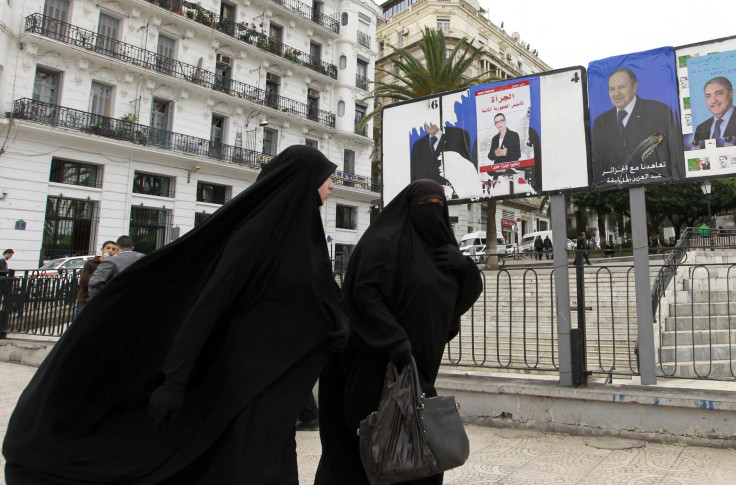Algeria Domestic Violence Law: Violence Against Women Illegal, But Human Rights Group Remains Skeptical

Algeria criminalized domestic violence against women Thursday in legislation that would, among other things, safeguard married women’s financial interests and create harsh punishments for men who attack women. But the move wasn’t without controversy.
Under the new law, husbands found guilty of beating their wives could face up to 20 years behind bars or even life sentences, depending on the severity of a woman’s injuries, the Agence France-Presse reported. Between 100 and 200 women are killed each year in Algeria because of domestic violence.
Worldwide, nearly 40 percent of all murders of women were committed by their partners, according to a 2014 report from the World Health Organization. Many Africa countries do not have laws against domestic abuse. In Algeria, there were over 7,000 reported cases of violence against women in 2011. However, experts say the number is likely far higher because many victims do not report their abuse. The majority of domestic abuse cases involved husbands as the aggressors.
Algeria is one of several North African countries with loopholes in their rape laws involving girls under the age of 18 that allow men to escape prosecution if they marry their victims. The outcry over such laws came to a head in 2012 with the suicide death of a 16-year-old Moroccan girl named Amina Filali, which drew international attention.
Some conservatives criticized Algeria’s new anti-violence measure as being contrary to Islam and a breach of privacy. The law “aims to break up the family,” said Naamane Belaouar of the Alliance for a Green Algeria, according to the AFP.
The new law was also met with disapproval from the human rights group Amnesty International, which said a certain provision in the law that would give perpetrators clemency should the survivors of domestic violence choose to pardon them could set a dangerous precedent, according to PressTV. “The provision fails to confront the reality of the power relations,” the group said in a statement. “A failure to withdraw [the clause] could expose women who come forward to report domestic abuse to serious risks of violence or coercion to force them to withdraw a complaint.”
© Copyright IBTimes 2024. All rights reserved.






















